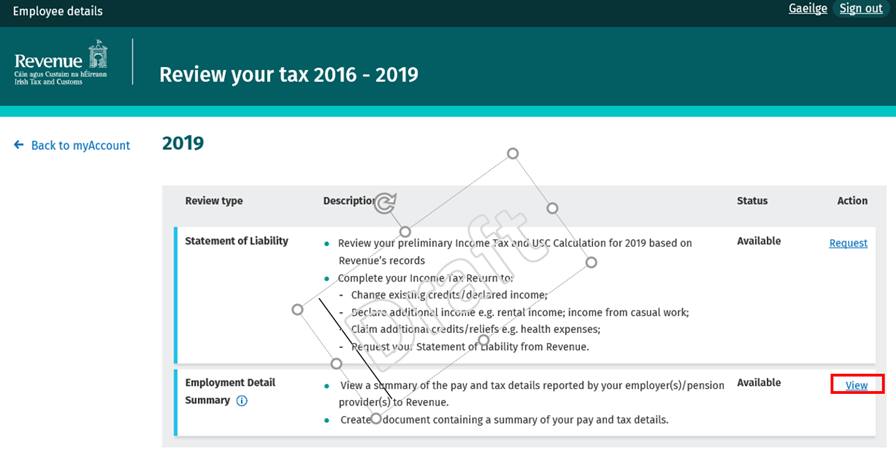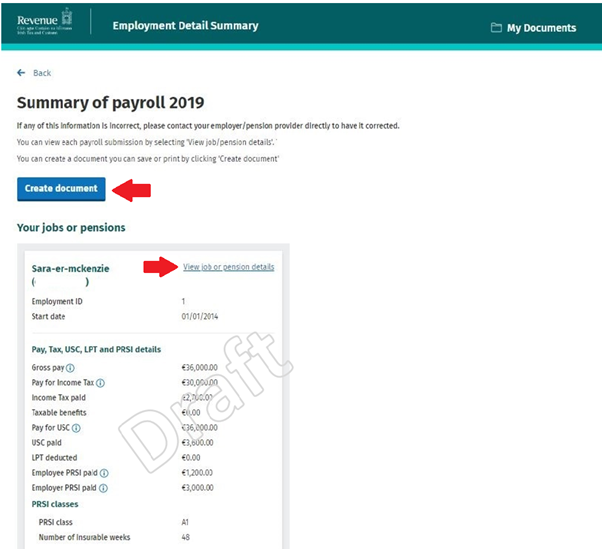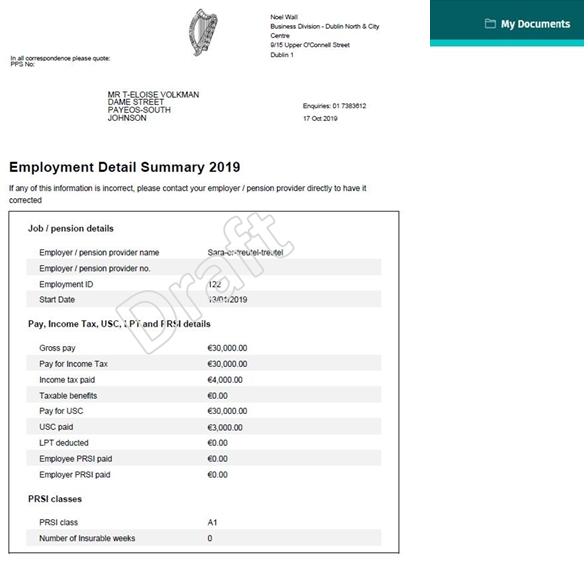The P60 Replacement
From 1 January 2019, the P60 is abolished in line with PAYE Modernisation.
This means employees will no longer receive a P60 at the end of the year from their employer.
Instead, a P60 replacement called the Employment Details Summary (EDS) will be made available by Revenue to employees via their myAccount.
An employee's Employment Details Summary will contain a summary of pay, income tax, USC, PRSI & LPT per employment as reported by their employer(s).
This P60 replacement may be utilised in the same way as a P60 was for income verification purposes (financial institutions, HSE or County Councils) and an option will be given in MyAccount for this to be saved/printed.
Employment Details Summaries will be available to view within MyAccount from the beginning of January, however it is recommended that employees wait until after 15th January 2020 to access these in case their employer submits corrections up until this correction deadline date.
An employee's Employment Details Summary can be accessed as follows within their MyAccount:



Need help? Support is available at 01 8352074 or brightpayirelandsupport@brightsg.com.





